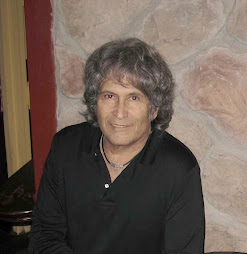Overview
As I wrote about earlier, dairy is a fairly recent food in the human diet. Humans started using it only after we began domesticating animals, and taming them so they would stand still and let us milk them. It was all a process of learning the earliest forms of animal agriculture. It was NOT given to humans as a gift from above.
Dairy is high in saturated fat, excess protein (animal protein) , and cholesterol (fat and cholesterol are two separate items...you can have low fat with high cholesterol and low cholesterol with high fat) Diets high in these ingredients are prime candidates for cardiovascular disease. Stroke is similar to heart disease. In simple terms, it is a clogging of arteries to the brain, as opposed to the heart. When I refer to Dairy, I'm referring to ALL of it...milk, cheese, butter, ice cream, cottage cheese, cream cheese etc.
Cancer of the breast and prostate is closely related to consumption of dairy products. Cow's milk is basically a hormone delivery system which supplies vital nutrients and hormones for a baby calf, not a baby human. The composition of cow's milk and human milk is significantly different with human milk actually resembling rat's milk more closely than cow's milk. (protein, fat content and other nutrients) Most of the countries that consume the most dairy, have the highest rates of breast and prostate cancer (US, Scandinavia near the top)
Diabetes is closely linked with dairy consumption, especially in children. The insulin producing cells of the pancreas are affected (or destroyed) in children from ingredients in dairy.
Osteoporosis is the disease that seems to have the best "press" about the virtues of drinking milk to build strong bones and prevent this crippling disease. But the reverse seems to be the truth. Once again, the countries with the highest consumption of dairy have the highest rates of osteoporosis and hip fractures. Osteoporosis is not a disease of too little calcium, but rather a disease of too much protein. Excess protein leaches calcium out of the body through the urinary system. Milk is high in calcium but also high in protein. As we drink milk (and this is more true for later on in life) the excess protein in the milk pulls the calcium right out, and so no gain in calcium is seen. It is better to get calcium from vegetables such as leafy greens (kale is a good source), brocolli, and beans, to name a few.
There are many other problems caused by dairy that have lesser consequences than the above major diseases. (allergies, colic, gastrointestinal issues, iron deficiency anemia, tolerance build up to antibiotics...to name a few)
Dr. T. Colin Campbell, author of "The China Study" (www.thechinastudy.com) once said that casein, found in dairy, is the worst ingredient humans ingest. He shows in his book the direct links to cancer. You'd think the message would be more accepted by now with the general public, or at least within the medical profession. But in this country, there seems to be no end to its popularity. Dairy can be looked at as liquid meat. It is not healthier than animal flesh, and should be reduced or eliminated from one's diet.
For more information about dairy, I recommend the incredibly comprehensive and informative site of Robert Cohen, the Not Milkman:
There is more information here, with links and articles from A-Z about dairy, than you've ever thought could exist about the subject!

No comments:
Post a Comment
PLease leave a comment or question for further discussion.